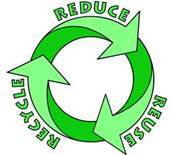ALEXANDRIA, VA--September 19, 2012: According to a survey released today by SLAB Watchdog an overwhelming majority of consumers (79.4 percent) believe large retailers like Wal-Mart and Sears should recycle domestically the millions of car batteries they replace each year. In addition when given a choice of locations and regulatory structures under which batteries should be recycled, only five percent felt it should occur in foreign countries under local laws. The survey's finding underscores the need for large retailers to focus on ending the practice of Spent Lead Acid Battery (SLAB) exportation during the Retail Industry Leaders Association's (RILA) sustainability conference which begins this week in Phoenix, Arizona.
“Improper or substandard battery recycling emits dangerous pollutants like lead and acid. Where should recycling occur?”
"SLAB Watchdog has long stressed the need for big-box retailers to step up to the plate and play a leading role in ending SLAB exports to Mexico. Our survey shows their customers feel the same way," said Diane Cullo, SLAB Watchdog's Director.
"With more than 80 percent of consumers responding in favor of domestic recycling, it is time for America's retail leaders to take a long, hard look at their sustainability practices," Cullo added. "Retailers cannot ignore consumers' strong rejection of foreign recycling and it is time for large retailers to acknowledge they have a responsibility to be better stewards of the used car, truck and boat batteries they handle. There is no better time to start focusing on this important issue than at the RILA Sustainability Conference happening this week."
Highlights of the SLAB Watchdog Google Consumer Recycling Survey:
- When asked the question: "Large retailers like Wal-Mart or Sears replace millions of car batteries annually. Should retailers ensure the batteries are recycled in the U.S.?" An overwhelming majority (82.4 percent) agreed;
-
When asked: "Improper or substandard battery recycling
emits dangerous
pollutants like lead and acid. Where should recycling
occur?"
- Fifty percent of respondents replied, "Where best for the environment and people."
- Forty percent replied, "In the U.S. under federal laws."
- Five percent selected, "In foreign countries under local laws."
-
Four percent chose the option of "foreign
countries with U.S.
regulations."
Percentages may not add up to 100 because of rounding.
"It is clear that consumers reject the idea of foreign recycling for their spent lead acid batteries," said Cullo. "Retailers cannot hide behind recyclers who claim to be adhering to U.S. standards despite operating in Mexico. Published studies using data from Mexican government sources show Mexican battery recyclers emit 20 times more lead pollution than their American counterparts. The most advanced recyclers operating under the strictest regulations are found in the United States. When a combined 90 percent of consumers express a preference for recycling under U.S. government oversight or in a manner that best protects the environment and people, we believe retailers should listen."
The SLAB Watchdog survey demonstrates consumers maintain a strong interest in the environmental stewardship of retailers who sell and replace millions of car, truck, and boat batteries each year. We believe this consumer interest represents an opportunity for retailers to promote their commitment to corporate social responsibility by focusing on how they handle SLABs throughout their supply chain. Even retailers not involved in the auto service industry have a stake in this issue that must be addressed. Retailers with large fleets of trucks and other vehicles that utilize batteries create large numbers of SLABs each year that can end up in substandard foreign recyclers unless properly managed. In addition, the emergency backup systems that power key operations of retailers rely heavily on deep cycle lead acid batteries that must be replaced regularly.
"Whether it is through fleet and warehouse vehicles or their emergency backup systems, large retailers generate significant numbers of SLABs that may end up polluting the environment and harming communities in developing countries unless retailers extend their sustainability initiatives to spent lead acid batteries," concluded Cullo.
In addition to its focus on retailers and their fleets, the SLAB Watchdog Survey also showed that consumers believe the federal and state governments, with a combined fleet of more than 600,000 vehicles, should recycle their SLABs domestically. According to the survey more than 64 percent of consumers believe batteries bought with taxpayer dollars should be recycled domestically.
The SLAB Watchdog Customer Recycling Survey was conducted through the Google Customer Survey service from September 14 -16, 2012. The survey polled 500 consumers who had replaced their car battery in the last two years on a variety of topics relating to SLAB exports.



